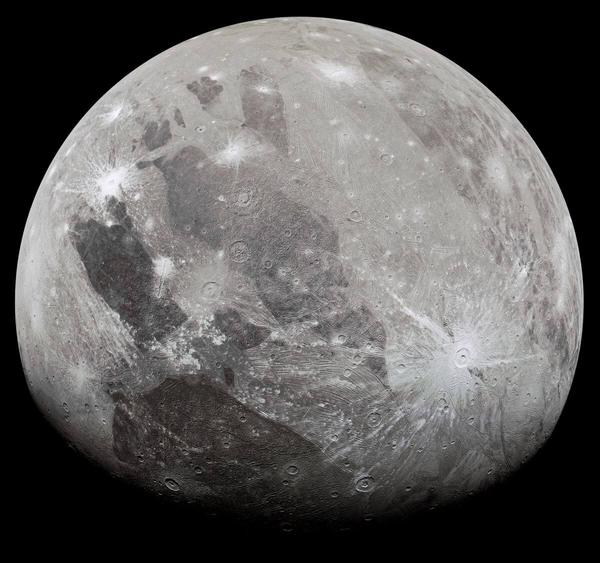NASA has released the ``Sound of Ganymede,'' which is a slide into audible frequencies of the electrical and magnetic data observed by the Juno spacecraft when it flew by Jupiter's moon in June.
Scott Bolton, principal investigator at the Southwest Research Institute in San Antonio, describes the sound as "if you listen carefully, you'll hear a sudden shift to higher frequencies in the middle." explanation. They explain that this is a change when the spacecraft moves across multiple regions in Ganymede's magnetosphere. One of the researchers, William Carse, said it was probably a change when Ganymede moved from the night side to the day side.

The NASA team has also created detailed maps of Jupiter's magnetic field. Comparing the data observed over five years in the orbit of Jupiter, we can see that the "great ceruleus spot", a magnetic anomaly of Jupiter on the equator, is moving eastward. At a speed of about 2 inches per second, it would take about 350 years to orbit Jupiter. On the other hand, the high-pressure zone near the equator, the Great Red Spot, which is most visible in Jupiter's photographs, is moving westward and is said to complete a full circle in about four and a half years.
"This is the first time we've seen Jupiter's magnetism influenced by its atmosphere," Bolton told the Washington Post, adding that Jupiter's "deep atmospheric activity is what we think It shows that it is more dynamic," he said. The research team also released high-resolution images of the vortices seen on Jupiter's surface. These vortices are similar to the vortices that appear in the oceans of the Earth, and we believe that they are naturally generated due to the movement of the atmosphere.
These observations and studies will help us better understand the origin of Jupiter and the formation of planets in our solar system. Gas giants like Jupiter must have played a big part in shaping our solar system to what it is today, but astronomers still don't fully understand the details.
Bolton said, 'Where did we come from and how did we get here? Jupiter is a big part of that story.'